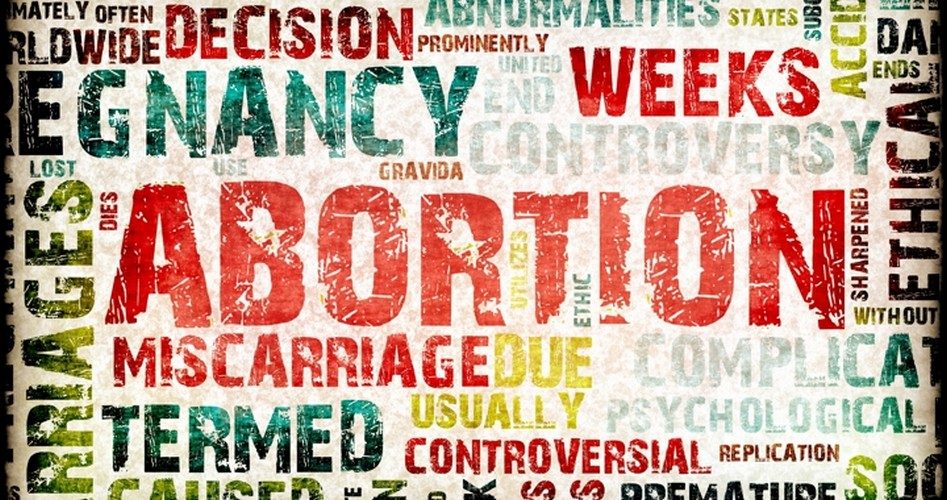
Utah’s Governor Gary Herbert signed his approval on Monday to a bill that banned abortion in his state after 18 weeks of gestation. The new law replaces a previous law that banned abortion after 22 weeks of gestation. Considering that many abortionists stopped doing the procedure at 21 weeks, being careful not to run afoul of that law, this means, in effect, that Utah abortionists will most likely restrict their procedures to before 17 weeks.
State Representative Cheryl Acton (R-Salt Lake City) was the author of the bill, HB 136, which originally limited abortions to 15 weeks gestation. But the bill was revised in the House up to 18 weeks. Even with this revision, there is a probability that pro-abortionists will challenge the new law in court.
The American Civil Liberties Union of Utah issued a joint statement with Planned Parenthood, condemning the law, arguing it was unconstitutional. “This ban adds to the long list of restrictive abortion policies that legislators have already enacted in this state. For example, Utah already forces people seeking abortion to complete a state-mandated online education module and a face-to-face informed consent session designed to discourage people from seeking abortion services, and then wait 72 hours before receiving abortion care. These medically unnecessary restrictions can cause delays that force abortion later into pregnancy and disproportionally impact women who live in rural areas of our state and families who are economically disadvantaged.”
Abortion is becoming an increasingly contentious issue in the states. Some states, such as Utah and Mississippi (which last year passed a 15-week abortion law only to see a federal judge nix it), are moving to further restrict the grisly practice. Other states, such as New York, have gone in the other direction, allowing abortions to be performed at the very latest stages in pregnancy. Virginia Governor Ralph Northam recently defended a bill in his state that would have even allowed the death of a child born after a failed abortion. “When we talk about third-trimester abortions,” Northam explained, “these are done with the consent of obviously the mother, with the consent of the physicians, more than one physician, by the way.”
Northam continued, “So in this particular example, if a mother is in labor, I can tell you exactly what would happen. The infant would be delivered. The infant would be kept comfortable. The infant would be resuscitated if that’s what the mother and the family desired, and then a discussion would ensue between the physicians and the mother.”
Along with the fight over the confirmation of Brett Kavanaugh to the Supreme Court, which the Left fought so strongly out of fears that a Justice Kavanaugh would provide the margin needed to reverse the notorious Roe v. Wade decision, which claimed state laws restricting abortion were somehow “unconstitutional,” these new laws indicate that the abortion issue is becoming increasingly contentious.
In the early years after Roe v. Wade was decided in 1973, the pro-life movement focused upon getting a “Human Life Amendment” added to the U.S. Constitution, which would have specifically protected the life of an unborn child. But then the strategy of the pro-life movement shifted to what can be called an incremental approach — save as many babies as can be saved now, work on changing public opinion on the issue of abortion, and elect presidents who would place enough judges on the Supreme Court to overturn Roe.
This approach has both saved millions of lives and has persuaded millions of Americans that abortion is wrong. Today, more than 75 percent of Americans support further restriction on legal abortion, largely as a result of this persistence on the part of the pro-life movement. This has resulted in bringing America’s abortion rate to historic lows — the lowest rate since Roe was handed down.
While not all anti-abortionists agree with this incremental approach, Clinton Wilcox, a pro-lifer, noted that slavery abolitionist William Wilberforce in England “worked incrementally; voting for legislation that kept slavery legal yet made conditions safer for slaves. He knew that the way his culture was, he couldn’t pass all or nothing laws. He worked to change the culture’s perception of slavery while working to pass incrementally better legislation until he was finally able to abolish it altogether.”
Hopefully, the day will come when the scourge of abortion is illegal across the nation. Until then, laws such as the one passed recently in Utah will continue to save millions who otherwise would have been aborted.



